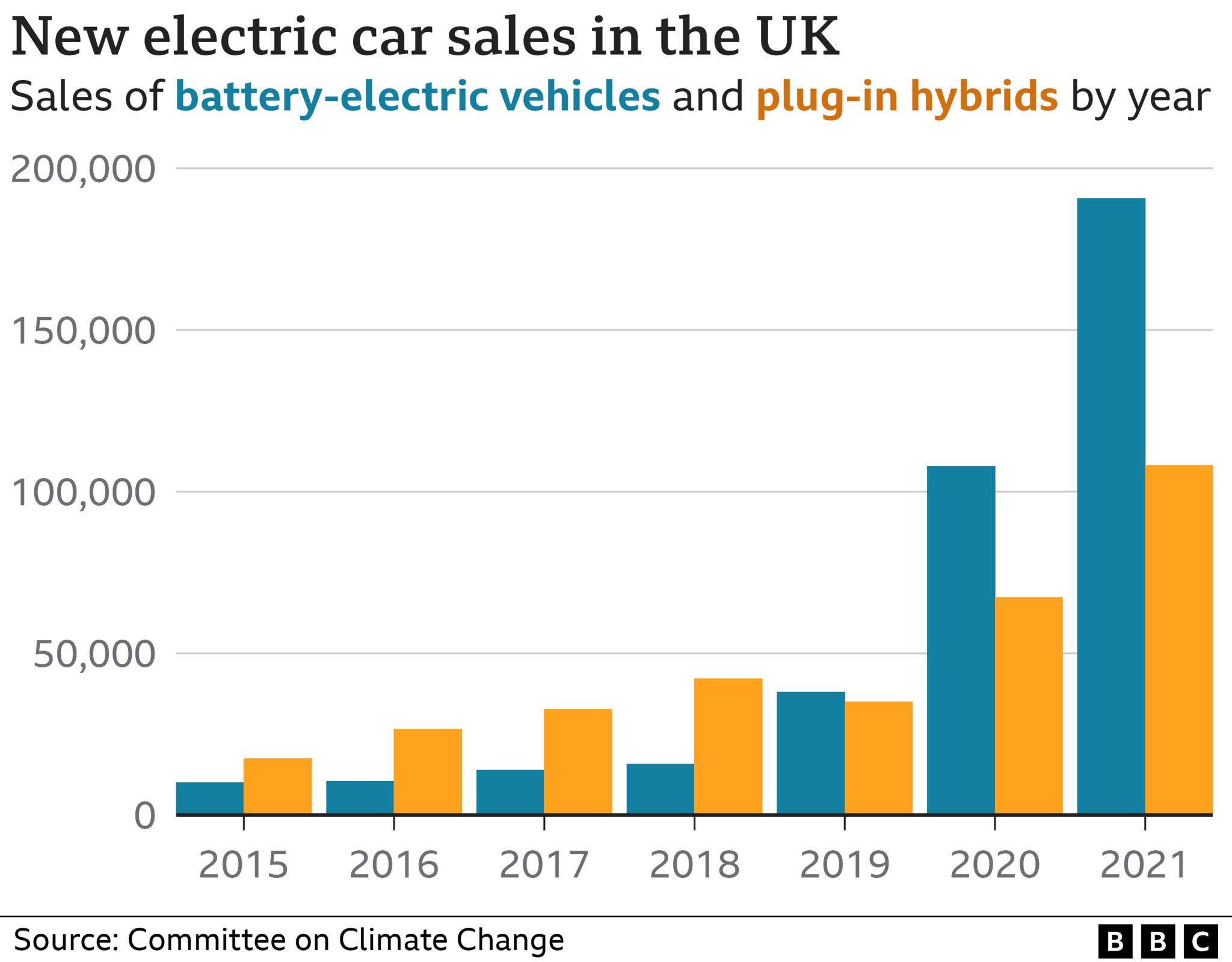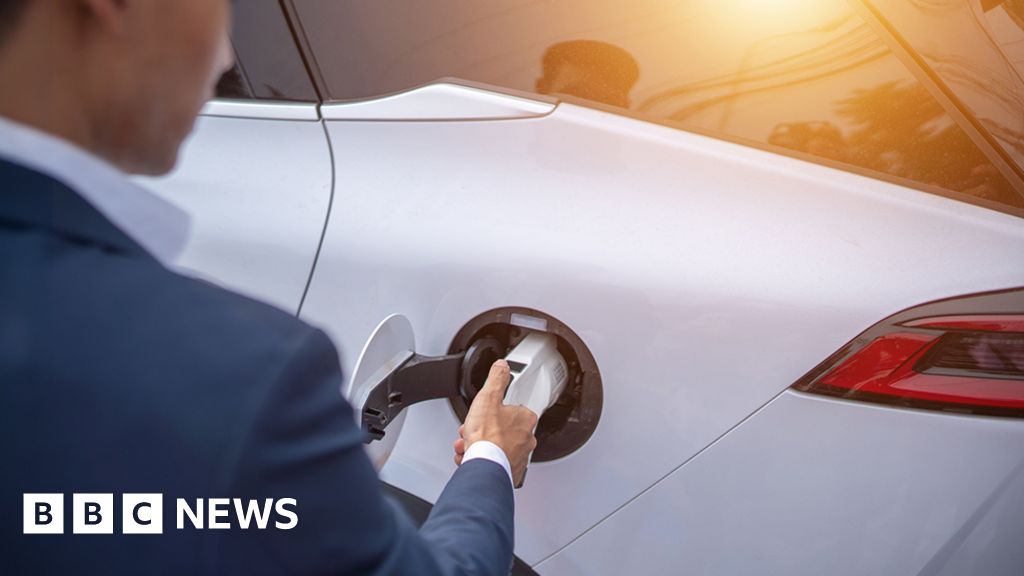
Electric cars will no longer be exempt from vehicle excise duty from April 2025, the chancellor has said.
Announcing the change as part of his Autumn Statement, Jeremy Hunt said the move was designed to make the motoring tax system “fairer”.
The RAC motoring group said it did not expect the change to dampen demand for electric vehicles (EVs).
But others, including the AA, warned the move would reduce the incentive to switch to EVs.
Mr Hunt said: “Because the OBR (Office for Budget Responsibility) forecasts half of all new vehicles will be electric by 2025, to make our motoring tax system fairer I’ve decided that from then, electric vehicles will no longer be exempt from vehicle excise duty.”
Vehicle Excise Duty (VED) is a tax levied on vehicles on UK roads. At present, EVs are exempt.
There are different rates depending on the vehicle.

The chancellor said company car tax rates for electric vehicles will remain lower than for traditionally fuelled vehicles.
RAC head of policy Nicholas Lyes said: “After many years of paying no car tax at all, it’s probably fair the government gets owners of electric vehicles to start contributing to the upkeep of major roads from 2025.
“Vehicle excise duty rates are unlikely to be a defining reason for vehicle choice, so we don’t expect this tax change to have much of an effect on dampening the demand for electric vehicles given the many other cost benefits of running one.”
The Local Government Association also welcomed the move, saying that although electric cars are much less harmful for the environment than petrol and diesel cars, they still contribute to carbon emissions, congestion, and wear and tear on roads.
“It’s only fair then that drivers contribute towards these additional costs and help support investment in even lower carbon alternatives such as public transport, buses, cycling and walking,” said its transport spokesperson, David Renard.
However, the AA said the introduction of the tax on electric cars would “slow the road to electrification”.
“This may delay the environmental benefits and stall the introduction of EVs onto the second-hand car market. Unfortunately the chancellor’s EV taxation actions will dim the incentive to switch to electric vehicles,” said Edmund King, AA president.
In another change unveiled in the Autumn Statement, the exemption for electric cars from the expensive car supplement has also been removed.
It means anyone buying a new car – electric or otherwise – priced at more than £40,000 will face having to pay £165 in tax plus a £355 expensive car supplement every year from the second to sixth year of registration.


The sale of new petrol and diesel cars is due to be banned in the UK from 2030.
This has prompted the question of how the tax revenue raised from car tax (VED) and fuel duty can be replaced. Between them, they raise some £35bn a year.
In February, a committee of MPs suggested the government consider a form of “road pricing”, where drivers pay according to the distance they’ve driven, the type of vehicle, and congestion.
This has been suggested in the past but proved unpopular. However, the RAC thinks drivers now support the principle of “the more you drive, the more tax you should pay”.
Today, the chancellor did not commit to that.
But his announcement means that in just a few years’ time, electric car owners will go from paying no car tax, to paying the same as owners of petrol or diesel cars.
Plus, owners of more expensive models will face the extra cost of an annual supplement for five years.

Ryan Fulthorpe, motoring expert at comparison site Go.Compare, called the Chancellor’s announcement “a real blow” for electric car drivers.
“Traditionally, the environmental benefits of driving an EV, coupled with the savings on running costs are the main reasons people make the switch away from a petrol or diesel car,” he said.
“So to increase the running costs of an EV seems counter-intuitive, and could ultimately slow the growth of this market.”
Meanwhile, Ian Plummer, director of automotive company Auto Trader, said the move would “drive more would-be buyers away from EVs” at a time when other incentives are also being removed, and high energy bills are reducing the merits of going electric.

More on the Autumn Statement
- LIVE REACTION: Follow the latest on our live page
- EXPLAINED: What will it mean for my money?
- ENERGY: What’s happening to my bills?

